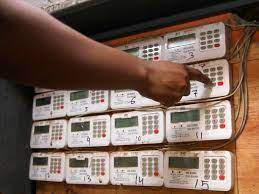EPRA to start countrywide inspection of renewable energy sources

As of now, geothermal contributes 26.37 per cent, solar photovoltaic systems (12.38 per cent), and wind energy (12.19 per cent) to the national grid.
The Energy and Petroleum Regulatory Authority (EPRA) is gearing up to launch a nationwide inspection of energy generation facilities following a significant move by the International Tracking Standard Foundation (I-TRACK Foundation).
This is after the International Tracking Standard Foundation (I-TRACK Foundation) was officially authorised by EPRA as the local issuer of the International Renewable Energy Certificates (I-REC(E)) in Kenya.
More To Read
In a statement released on Monday, EPRA confirmed that this new role will involve inspecting energy generation facilities to ensure the electricity produced comes from renewable sources.
"Kenya is on the cusp of achieving 100 per cent renewable energy electricity generation, which currently stands at 80.04 per cent contribution to the energy mix," EPRA Director-General Daniel Kiptoo said.
He noted that the country's focus on renewable energy sources, including geothermal, solar, and wind power, has significantly driven this progress.
As of now, geothermal contributes 26.37 per cent, solar photovoltaic systems (12.38 per cent), and wind energy (12.19 per cent) to the national grid.
Renewable energy certificates
The shift in responsibility also highlights the growing importance of renewable energy certificates.
Companies with an I-REC(E) certification will gain a competitive edge, as investors are increasingly prioritising eco-friendly operations aligned with Environmental, Social, and Governance (ESG) standards.
The decision to designate EPRA as the local issuer of the I-REC(E) certificate comes after a thorough assessment of the authority's expertise by the I-TRACK Foundation team.
EPRA's new role will replace that of the Green Certificate Company (GCC), which previously oversaw the inspection of energy generation facilities.
This move also aligns with EPRA's broader objectives to enhance the country's green energy credentials.
Earlier this year, the authority outlined plans to tackle energy inefficiency across various sectors.
In November, EPRA announced that it would review two key regulations: the Energy (Energy Management) Regulations, 2012, and the Energy (Appliances' Energy Performance and Labelling) Regulations, 2016.
The review aims to address gaps in energy efficiency, particularly in large-scale energy-consuming industries, and implement measures to optimize energy use.
Meanwhile, EPRA is bracing for additional changes within its top management following a proposed amendment to the Energy Act, 2019, introduced by Laikipia Woman Representative Jane Kagiri.
The amendment seeks to restructure EPRA's leadership to further align with the evolving energy sector.
Top Stories Today











































